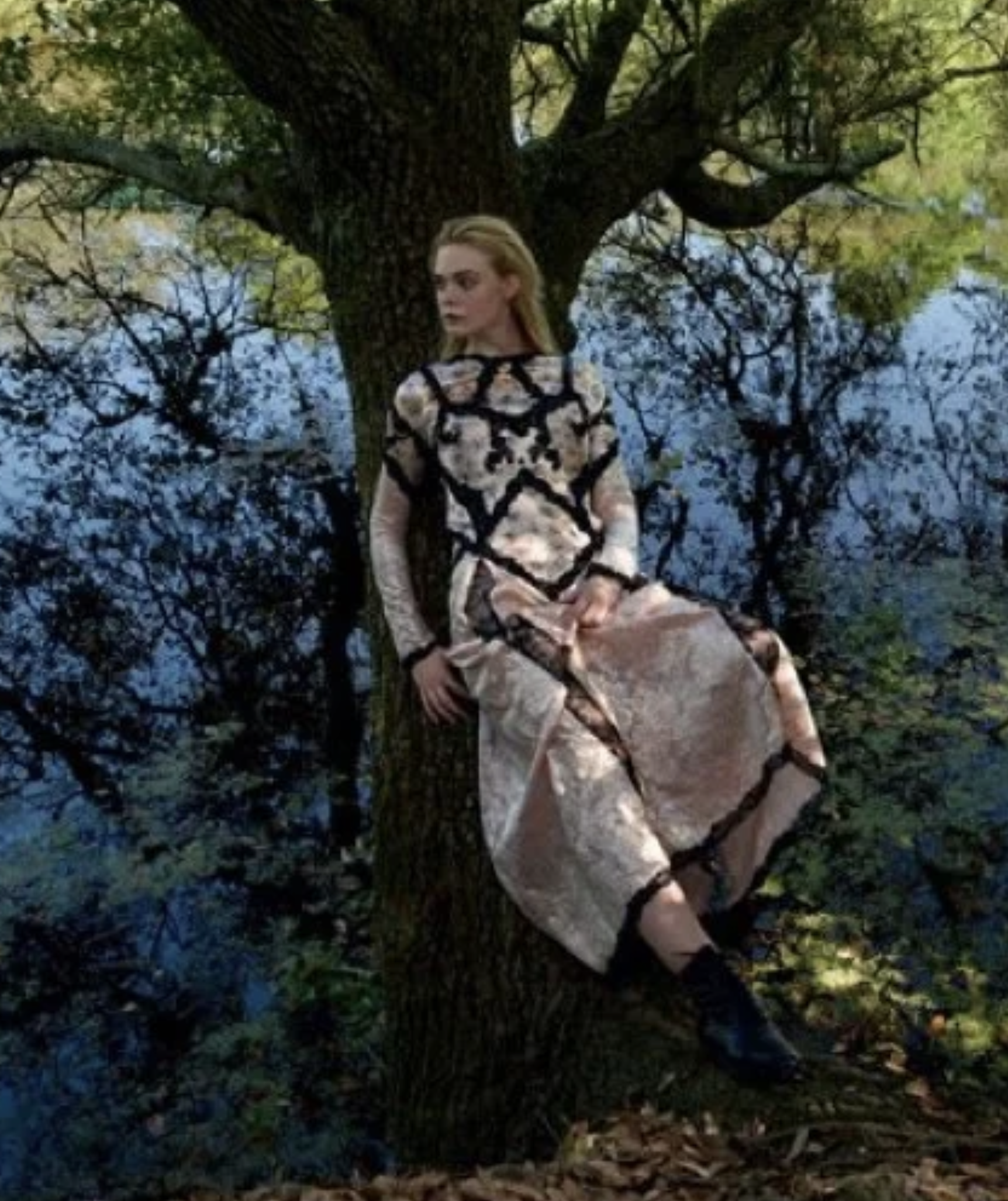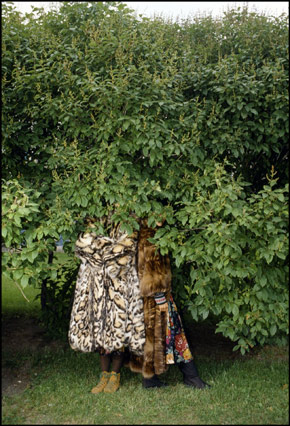Eye | Prince Ea 'Anti Social Network | VIDA Sustainable E-commerce Site | Barney's Holiday Windows
/
Barney’s New York’s Holiday Windows

Barney’s New York Unveils ‘Baz Dazzled’ Holiday 2014 Windows
Sustainable Fashion VIDA Startup
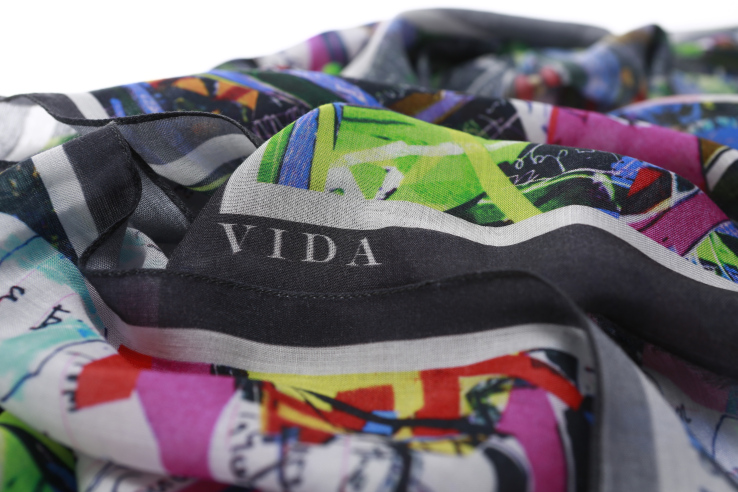 VIDA is a new sustainable e-commerce site founded by Pakistan native Umaimah Mendhro, who faced the music as an aspiring artist, recognizing how difficult it would be to enjoy career success. Blessed with an education at the Harvard Busines School and the acute knowledge that textiles were the backbone of GDP in her home country, Umaimah began working in social enterprise.
VIDA is a new sustainable e-commerce site founded by Pakistan native Umaimah Mendhro, who faced the music as an aspiring artist, recognizing how difficult it would be to enjoy career success. Blessed with an education at the Harvard Busines School and the acute knowledge that textiles were the backbone of GDP in her home country, Umaimah began working in social enterprise.
Enter onto the global stage VIDA, a site that pairs artists and designers with small-scale manufacturers. Fashionista reports that the startup has raised $1.3 million from investors like Google Ventures and Universal Music Group.
Umaimah, who is now married and living in San Francisco, worked at West and Microsoft where she halped build and launch technology products, writesTechcrunch.
The Vida site will launch any moment with a core collection of 75 products and a pricing strategy of items being $40-$95, perfect for a wide range of socially-conscious AOC Smart Sensuality women.
Techcrunch explains:
VIDA’s designers include painters, photographers, graphic designers, sculptors, 3D artists, architects, and textile and print designers from around the world, and include Elle Magazine’s ‘Up and Coming Fashion Designer from Sweden, Emma Lundgren,’ Vogue.com’s top 10 fashion grads to watch, Cigdem Keskin from Turkey, and Tokyo based ‘Top Hat Designer of the Year,’ Honoyo Imai.
They participate in the platform at no cost, then receive a 10% revenue share on products sold.
Daan Roosegaarde’s Glowing Van Gogh Cycle Path
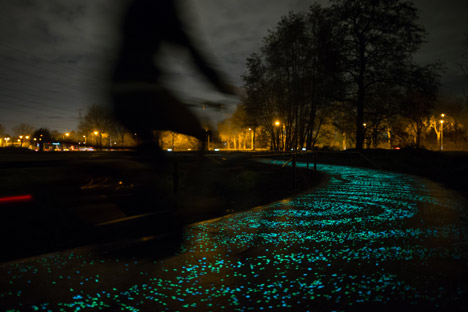 Dutch designer Daan Roosegaarde’s cycle path, illuminated with patterns based on Vincent van Gogh’s painting The Starry Night, officially opens in Nuenen, dazzling our inner spirits.
Dutch designer Daan Roosegaarde’s cycle path, illuminated with patterns based on Vincent van Gogh’s painting The Starry Night, officially opens in Nuenen, dazzling our inner spirits.
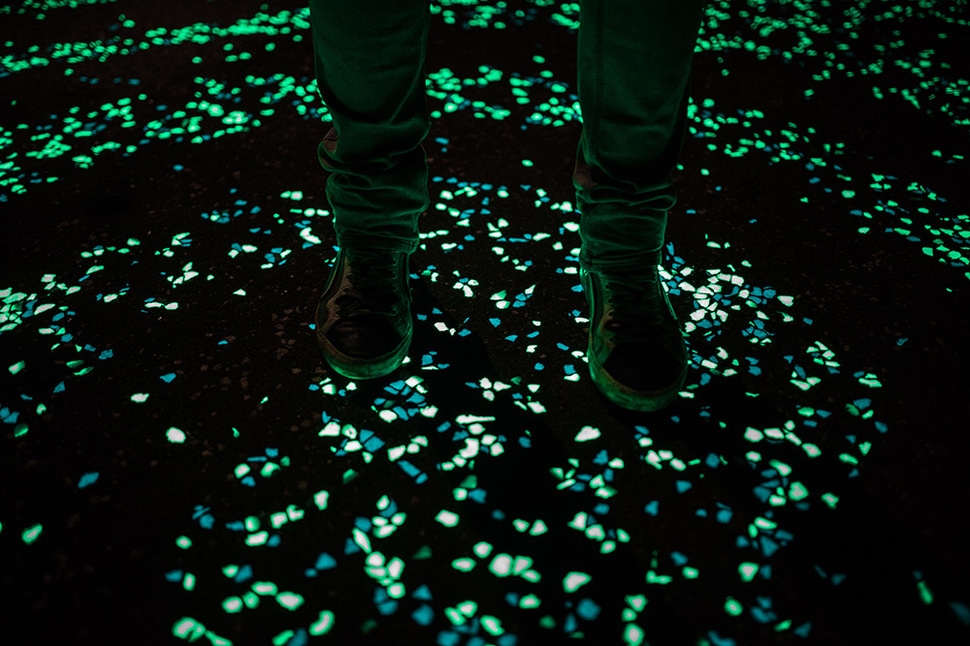
Anti Social Network
Rapper Prince Ea ‘Why I Refuse To Let Technology Control Me see FB
The Antisocial-Media App The New Yorker
In “River of Shadows,” her book about the pioneering photographer Eadweard Muybridge, Rebecca Solnit writes about how the development of new technologies in the nineteenth century—railroad networks, telegraphy, photography—was routinely referred to by the stock phrase “annihilation of time and space.” This annihilation, she writes, “is what most new technologies aspire to do: technology regards the very terms of our bodily existence as burdensome.… What distinguishes a technological world is that the terms of nature are obscured; one need not live quite in the present or the local.” The Internet has accelerated this process to a remarkable degree, alleviating more fully than ever before the burden of bodily existence. It allows us to be where we are not, but this also means not being where we are. By generating a kind of omnipresence—whereby we are always available, visible, contactable, all of us there all the time—the technologies that mediate our lives also cause us to disappear, to vanish into a fixed position on the timeline or the news feed. (“You are invisible,” runs the weirdly urgent message on my Gmail chat sidebar. “Go visible.”) Existing online means inhabiting a series of cloaks, a whole complex ontology of lurking and attenuated presence. And there is now that strange new sense of guilty truancy from leaving e-mails and phone calls unanswered while conspicuously tweeting or posting on Facebook—a social breach for which we don’t yet seem to have developed any sort of etiquette.


